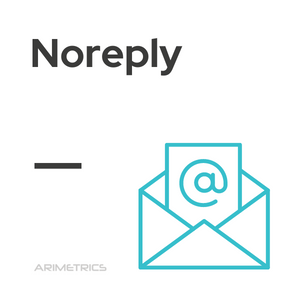 Definition:
Definition:
Noreply is a type of email address that allows you to send emails without waiting for any response back. It is often used as an alternative to using a real person’s email address, allowing the sender to remain anonymous and protect their privacy when sending mass mailings or newsletters. No-reply addresses are also frequently used by automated systems such as spam filters or mailing lists, allowing them to keep track of who sends emails without needing to add an email address for each individual recipient.
Examples of noreply
The use of “no reply” is common in the context of email marketing. Some examples of how “noreply” can be used include:
- When a company or organization sends automated emails to their customers or users, such as payment reminders or notices of changes to terms of service, they often use a “noreply” email address to indicate that no response is expected from the recipient.
- Some websites offer the option to receive email notifications, such as notices of updates in a forum or notifications of new blog posts. In this case, a “noreply” email address can also be used to indicate that a response is not expected from the recipient.
- Some messaging apps use “no-reply” email addresses to send notifications to users, such as event reminders or security alerts.
Disadvantages of using noreply
The use of “noreply” is generally discouraged in email marketing due to the following drawbacks:
- Recipients may be suspicious of emails sent by unknown senders.
- It is not possible to hold conversations when using a “noreply” address, as the sender does not expect any response.
- It is difficult to monitor or track email campaigns or newsletters that use a “noreply” address, as there is no feedback loop.
- “Noreply” addresses can be considered impersonal and cold, making it difficult for recipients to engage with messages.
- Some platforms block emails sent from a “noreply” address.
